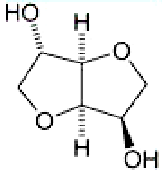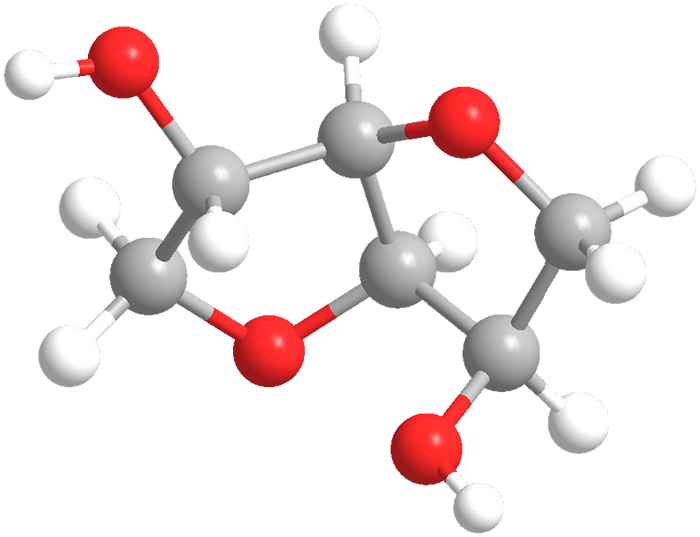

Isosorbide is a sugar dehydration product. It was first prepared by W. N. Haworth and L. F. Wiggins in 1948 by dehydrating D-sorbitol, which is obtained by reducing D-glucose. Originally used as a diuretic and an isosorbide dinitrate precursor, it is now sold as a biobased chemical by Archer Daniels Midland. Isosorbide is a potential replacement for bisphenol A in plastics manufacture.
MOTW update: September 30, 2019
Isosorbide was the Molecule of the Week for November 22, 2010. It is a sugar dehydration product that has been examined as a safe replacement for bisphenol A in plastics manufacture. At the recent ACS National Meeting in San Diego, Florence Popowycz of the University of Lyon (France) gave a paper based on her 2018 article “Diastereoselective iridium-catalyzed amination of biosourced isohexides through borrowing hydrogen methodology” Popowycz’s process uses corn-derived isosorbide as one of the substrates.

Learn more about this molecule from CAS, the most authoritative and comprehensive source for chemical information.
Molecule of the Week needs your suggestions!
If your favorite molecule is not in our archive, please send us a message. The molecule can be notable for its current or historical importance or for any quirky reason. Thank you!
Stay Ahead of the Chemistry Curve
Learn how ACS can help you stay ahead in the world of chemistry.

